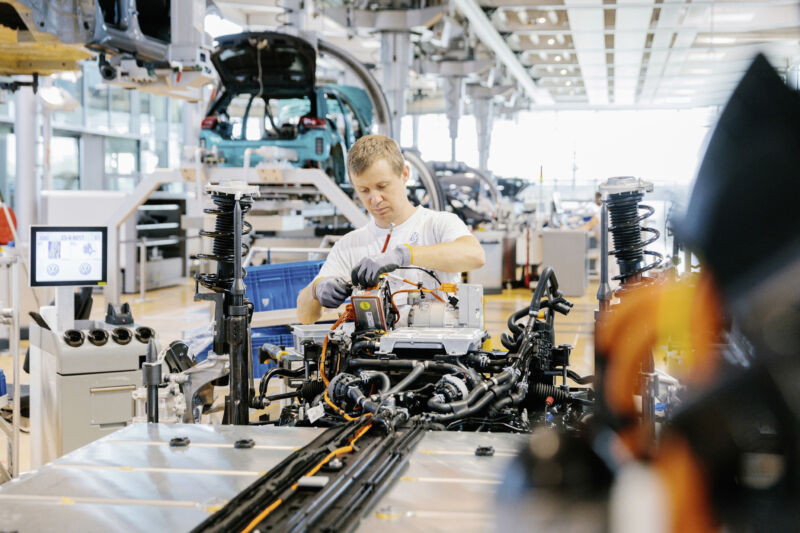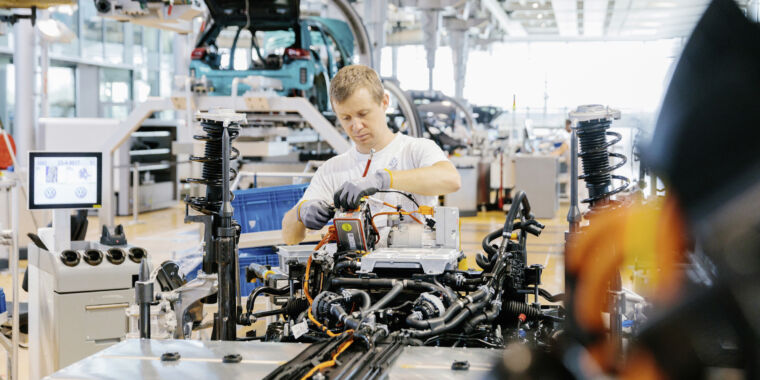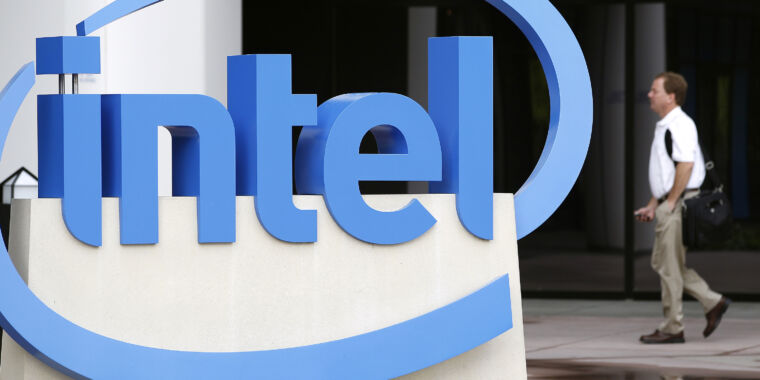
Volkswagen
Any hopes that the auto industry’s supply chain shortages were easing up appear to be comprehensively dashed this week. In Europe, Russia’s invasion of Ukraine has caused BMW and Volkswagen to halt production at a number of their factories. And an outbreak of COVID-19 in China has shuttered plants belonging to Toyota, VW, and now Tesla.
VW was one of the first to be affected. In late February, it announced that it was stopping production for four days at its factory in Zwickau, Germany, where the electric ID.4 crossover is built, as well as a three-day halt at another factory in Dresden.
By early March, a leaked internal memo from Porsche revealed that it, too, was affected and that production of all Porsche models would be delayed as a consequence.
BMW has also had problems, having to close factories in Munich and Dingolfing in Germany, as well as Mini’s plant in Oxford, England. The main problem? Wiring harnesses.
“When you look at Ukraine, this wiring harness industry gives work to maybe 20,000 people,” said Frank Weber, BMW member of the board of management, development, during a roundtable on Wednesday. “For BMW typically these are smaller wiring harnesses, like engine transmission wiring harness and only in one case we have a complete wiring harness in Ukraine,” Weber explained.
“So we don’t just want to take away to work there, we have duplicated machines in order to help us now to build up those wiring harnesses [in Germany]. And then we work with the suppliers in certain locations they had outside of Ukraine where they have capacity and we were able to very quickly develop fallback plans. And therefore we were able to now announce that next week we are going to resume all of our work, but it is [a] sad situation, as you can imagine,” Weber said.
COVID’s not done yet
Unfortunately for anyone who might want to buy a new car without a substantial markup, the war in Ukraine isn’t the industry’s only big supply chain problem.
For one thing, the chip shortage caused by the COVID-19 pandemic is still in effect. For example, Ford is now at the point where it says it will ship Explorer SUVs without rear-seat climate controls, with the offer to ship the missing parts to a dealer to be installed at some point within a year, once parts become available.
But the virus itself is not finished disrupting production, particularly in China. Both Toyota and VW have had to shut down production—in January in factories in Tianjin and then again in Changchun during March. And an outbreak in Shenzhen has slowed battery-maker BYD’s output as the Chinese authorities impose lockdowns.
Even Tesla has been affected. In 2020, the automaker announced it was moving its corporate headquarters to Texas after CEO Elon Musk chafed at the imposition of anti-pandemic public health measures on his California workforce. However, the Twitter-loving CEO has seemingly kept his cool with the Chinese authorities despite the fact that, according to Reuters, Tesla’s factory in Shanghai has been forced to close for two days due to the virus.








